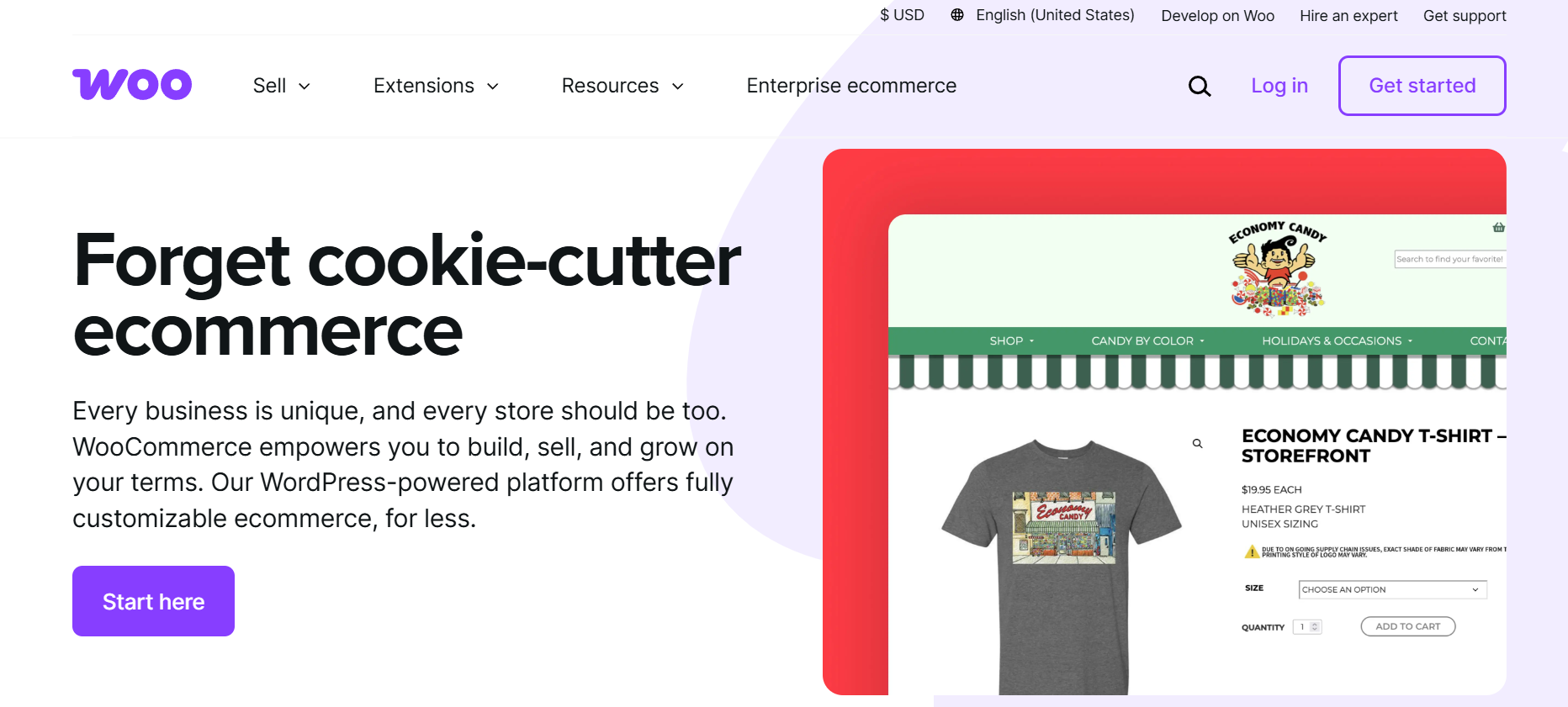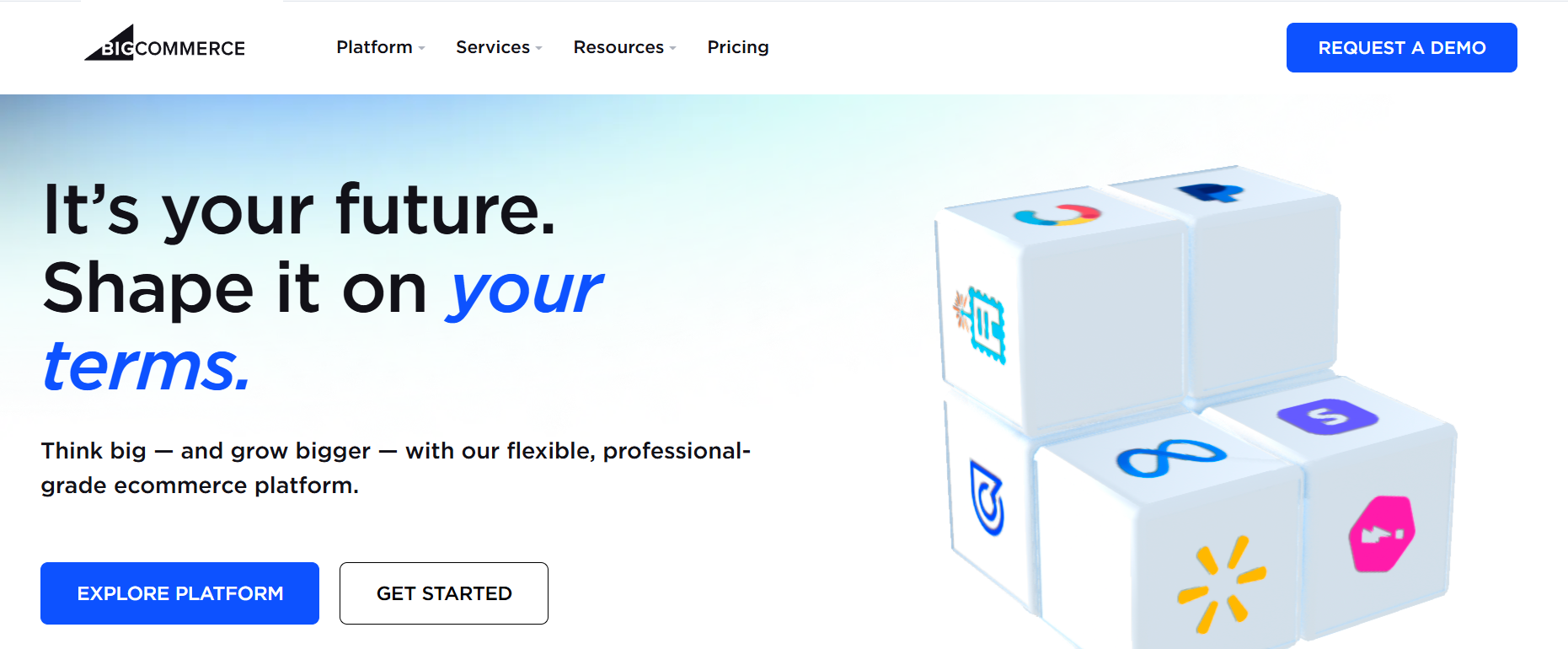Table of Contents
In today’s fast-paced digital world, ecommerce services have become the cornerstone of business success. As more consumers shift to online shopping, businesses are leveraging ecommerce platforms to reach a wider audience, streamline operations, and enhance customer experiences.
This comprehensive guide explores the multifaceted world of ecommerce services and digital commerce tools, highlighting the benefits, challenges, future trends that are shaping the online marketplace and how to choose top ecommerce service providers.
What Are Ecommerce Services?
E-commerce services are tools and solutions that help businesses sell products online. They include platforms for online store solutions, payment gateways, managing inventory, fulfillment and logistics, marketing, and providing customer support.
These services make it easier for businesses to operate and grow their online presence.

Smart Solutions to Grow Your Online Busines

10 Services That Enhance Your Ecommerce Success
- 24/7 Customer Support
- Outsourcing 24/7 customer support ensures that your customers receive assistance at any time of the day or night. This improves customer satisfaction and loyalty by providing prompt responses to inquiries and issues.
- Live Chat Integration
- Live chat integration can significantly enhance customer engagement on your e-commerce site. Outsourced live chat services offer instant responses to customer queries, increasing conversion rates and providing real-time support.
- Order Tracking and Updates
- Keeping customers informed about their order tracking status is crucial. Outsourcing order tracking and updates can streamline the process, ensuring timely and accurate communication with customers, thus reducing anxiety and improving the shopping experience.
- Product Knowledgebase
- An extensive and well-maintained product knowledgebase helps customers find information quickly. Outsourcing the creation and management of this knowledgebase can ensure that it is always up-to-date and comprehensive, aiding in customer self-service.
- Returns and Refunds Assistance
- Handling returns and refunds can be complex and time-consuming. Outsourcing this process to experts can simplify it, ensuring that customers have a smooth and hassle-free experience, which is essential for maintaining trust and satisfaction.
- Multichannel Support
- Providing multichannel support across multiple channels (e.g., email, phone, social media) is vital for reaching customers wherever they are. Outsourcing multichannel support can help manage these various touchpoints efficiently, offering consistent and cohesive customer service.
- Personalization and Recommendations
- Personalizing the shopping experience with tailored recommendations can boost sales and customer satisfaction. Outsourcing personalization services can leverage advanced algorithms and customer data to provide relevant product suggestions and improve the shopping experience.
- Technical Support
- Technical issues can disrupt the shopping experience and deter customers. Outsourcing technical support ensures that your customers receive expert help promptly, resolving issues efficiently and maintaining a smooth operation of your e-commerce platform.
- Mobile Optimization
- With the increasing use of mobile devices for shopping, ensuring a mobile-friendly website is crucial. Outsourcing mobile optimization can enhance the user experience on smartphones and tablets, making it easier for customers to browse and purchase products.
- Feedback Collection and Improvement
- Collecting and analyzing customer feedback is essential for continuous improvement. Outsourcing this process can provide valuable insights into customer preferences and pain points, allowing you to make informed decisions and enhance your e-commerce operations.
Advantages of Adopting ecommerce Services
Wider Market Reach
- Global Accessibility: Ecommerce breaks down geographical barriers, allowing businesses to reach customers worldwide. Unlike traditional brick-and-mortar stores limited by location, online platforms enable sellers to market and sell to anyone with internet access.
- Market Expansion: It opens up new markets for niche products that would otherwise have a limited audience. Online platforms can connect businesses with specific demographics looking for specialized products.
- Cost-Effective Marketing: Digital marketing strategies such as SEO, social media marketing, and email campaigns can be more cost-effective than traditional advertising, allowing businesses to reach a broader audience at a lower cost.
Cost Reduction
- Reduced Physical Infrastructure: Ecommerce eliminates the need for physical storefronts and the associated costs, such as rent, utilities, and maintenance. Businesses can operate from a single location or warehouse, significantly reducing overhead.
- Automation of Operations: From inventory management to customer service, many aspects of the business can be automated, reducing the need for a large workforce and minimizing human error.
- Efficient Supply Chain: E-commerce enables a more streamlined supply chain, with improved logistics, leading to faster delivery times and lower storage costs.
Personalized Shopping Experiences
- Data-Driven Insights: Ecommerce platforms collect valuable data on customer preferences, purchasing behavior, and browsing patterns. This data can be analyzed to understand customer needs better and tailor offerings accordingly.
- Customized Marketing: Businesses can use customer data to create targeted marketing campaigns, offering promotions, discounts, and product recommendations that resonate with individual customers, increasing conversion rates.
- Enhanced Customer Engagement: By personalizing the shopping experience, businesses can build stronger relationships with their customers, leading to increased loyalty and repeat business.
Enhanced Customer Service
- Around-the-Clock Availability: Ecommerce platforms offer the convenience of 24/7 shopping, allowing customers to make purchases at any time that suits them, enhancing the overall customer experience.
- Immediate Customer Support: With the integration of chatbots and AI-driven customer service tools, businesses can provide immediate assistance to customers, resolving queries and issues quickly.
- Seamless User Experience: Ecommerce websites and apps are designed for ease of use, enabling customers to find and purchase products effortlessly. Features such as one-click ordering, easy returns, and personalized dashboards make online shopping a seamless experience.
Who Are Ecommerce Services Providers?
eCommerce service providers are companies or organizations that offer various services and solutions to businesses operating in the online retail space.
These services can include website development, payment processing, logistics and shipping, marketing and advertising, customer support, and data analytics. The goal of eCommerce service providers is to help online retailers set up, manage, and grow their businesses effectively by providing the necessary tools, technologies, and expertise.
Examples of eCommerce service providers include Shopify, Amazon Web Services (AWS), PayPal, FedEx, and Google Ads.
Top ecommerce Services Providers in 2025
Selecting the right ecommerce services provider is crucial for the success of your online business. The market is filled with numerous platforms, each offering a unique set of features, pricing models, and integrations. To help you navigate through the options, here’s a list of top ecommerce services providers to consider, known for their reliability, scalability, and comprehensive feature sets:
Fathershops

- Overview: Fathershops is an ecommerce platform that provides a wide array of ecommerce services tailored to meet the needs of modern online businesses. It aims to offer an all-in-one solution that encompasses everything from online storefront creation to inventory management, making it a versatile choice for businesses of all sizes
- Key Features: Fathershops distinguishes itself with a user-friendly interface, a wide range of customizable templates, theme builder, integrated payment processing solutions, and advanced inventory and order management systems. Additionally, it provides tools for customer relationship management (CRM), allowing businesses to foster better customer interactions and loyalty.
- Best For: Businesses seeking a comprehensive ecommerce solution that covers all the bases, from setting up an online store to managing day-to-day operations efficiently. It’s particularly suitable for those who prioritize ease of use combined with advanced functionality.
Shopify

- Overview: Shopify is one of the most popular ecommerce platforms globally, known for its ease of use, robust functionality, and scalability. It’s suitable for businesses of all sizes, from small startups to large enterprises.
- Key Features: Intuitive drag-and-drop interface, extensive app marketplace, customizable templates, and excellent customer support. Shopify also offers integrated payment processing with Shopify Payments.
- Best For: Businesses looking for an all-in-one solution that is easy to set up and manage without extensive technical knowledge.
Magento (Adobe Commerce)

- Overview: Magento, now known as Adobe Commerce, is a powerful open-source ecommerce platform preferred by medium to large businesses that require extensive customization and scalability.
- Key Features: Highly customizable, strong SEO capabilities, a large community of developers, and robust data and order management features. It is well-suited for businesses with high transaction volumes and those that need a highly tailored ecommerce environment.
- Best For: Businesses that require a customizable solution and have the resources to manage or hire a development team.
WooCommerce

- Overview: WooCommerce is a free, open-source ecommerce plugin for WordPress. It’s a flexible and customizable platform that integrates seamlessly into WordPress sites, making it ideal for businesses already using WordPress for their website.
- Key Features: Wide range of themes and plugins, strong content management capabilities, and the ability to sell both physical and digital products. It offers complete control over the checkout process and is highly SEO-friendly.
- Best For: Small to medium-sized businesses and those already familiar with the WordPress ecosystem looking for a cost-effective solution.
BigCommerce

- Overview: BigCommerce is a cloud-based ecommerce platform that serves a wide range of industries, including small businesses and large enterprises. It’s known for its comprehensive set of built-in features and ease of use.
- Key Features: Robust product management, various payment gateway integrations, strong SEO performance, and multi-channel selling across Facebook, Instagram, and Amazon.
- Best For: Businesses looking for an extensive feature set out of the box without the need for numerous add-ons or custom development.
Wix eCommerce
- Overview: Wix eCommerce is part of the Wix website builder platform, offering an easy-to-use solution for small businesses and entrepreneurs to start selling online quickly.
- Key Features: User-friendly drag-and-drop interface, attractive design templates, and basic ecommerce features suitable for small-scale online stores. It also offers good mobile optimization and various payment solutions.
- Best For: Small businesses, artists, and entrepreneurs who want to combine their ecommerce store with a visually appealing website without requiring extensive ecommerce functionalities.
Benefits Of Partnering With Ecommerce Service Providers
Partnering with the right ecommerce services provider is a strategic move that can significantly impact the success and growth of your online business.
A provider that matches your business needs not only streamlines operations but also enhances the overall shopping experience for your customers.
Let’s explore these benefits in more detail:
Enhanced Operational Efficiency
- Streamlining Processes: By automating routine tasks such as store setup, order processing, and customer communications, businesses can operate more efficiently. This automation reduces the likelihood of human error and ensures that operations run smoothly, even during high-volume periods.
- Focus on Growth: With the day-to-day operations handled more efficiently, business owners and their teams can dedicate more time to strategic planning and growth initiatives. This could include expanding product lines, exploring new markets, or enhancing marketing efforts.
Improved Customer Experience
- Seamless Shopping Journey: A provider that offers a well-designed, easy-to-navigate, and responsive website platform creates a seamless shopping experience. Customers can find what they’re looking for with ease, leading to higher satisfaction and reduced cart abandonment rates.
- Security and Trust: Ensuring transactions are secure is paramount in building customer trust. A reliable ecommerce services provider will implement robust security measures to protect customer data, thereby enhancing confidence in your online store.
- Personalization: Advanced ecommerce platforms can offer personalized shopping experiences based on customer data and behavior, making recommendations and highlighting products that meet individual preferences. This level of personalization can significantly enhance customer satisfaction and loyalty.
Market Reach Expansion
- Integration Capabilities: The ability to integrate with various marketplaces and social media platforms extends the reach of your business, making your products accessible to a larger audience. This includes platforms like Amazon, eBay, and Etsy, as well as social media channels where potential customers spend a significant amount of time.
- Global Opportunities: An ecommerce services provider with multi-language and multi-currency support can open up global markets for your business, allowing you to sell to customers around the world without significant barriers.
Data-Driven Insights
- Informed Decision Making: Access to comprehensive analytics and reporting tools means businesses can make informed decisions based on real-time data. This can cover a wide range of metrics, including website traffic, conversion rates, customer behavior patterns, and more.
- Sales Trends and Customer Preferences: Understanding how customers interact with your site and what products are trending can help you adjust your inventory, marketing strategies, and even product development to better meet market demand.
- Optimization Opportunities: Continuous access to performance data allows businesses to optimize their online stores, marketing efforts, and product offerings to improve sales and customer engagement over time.
Read More
- What is Dropshipping Business and Why Start One?
- Can Dropshipping Be a Career?
- How to Start an Ecommerce Business in 2025
- Dropshipping Pricing Strategy – Avoid Costly Mistakes
- How to Automate Your Dropshipping Business in 2025
- What is Dropservicing?
- 20 Best Automated Business Ideas for Entrepreneurs
- Aliexpress Dropshipping Comprehensive Guide
- What is Private Labeling and How Does It Work?
- 20 Common Dropshipping Mistakes Every Beginner Should Avoid
Conclusion
Ecommerce services are no longer just an option but a necessity for businesses looking to thrive in the digital age. By understanding the benefits, addressing the challenges, and staying informed about future trends, businesses can harness the full potential of ecommerce to achieve remarkable growth and success.
The decision to choose an ecommerce services provider should not be taken lightly. It requires a strategic approach, considering your current needs and future goals.
By prioritizing scalability, security, user experience, and support, you can select a partner that will not only meet your immediate requirements but also support your long-term business objectives.
FAQs
What are ECOM services?
ECOM services include all the tools and platforms that help businesses sell products online.
This includes online stores, payment processing, inventory tracking, order shipping, customer support, marketing tools, and sales analytics.
How does e-commerce work?
E-commerce works by allowing businesses to sell products online. Customers visit a website, choose products, and pay online. The business then processes the order, ships the products, and handles any customer service needs.
Is e-commerce profitable?
Yes, e-commerce can be profitable. It often costs less to run than a physical store, reaches more customers, and operates 24/7.
Success depends on having in-demand products, good management, and effective marketing.
What is commerce as a service?
Commerce as a Service (CaaS) is a cloud-based model where companies use online services to manage their e-commerce operations.
This includes setting up online stores, handling payments, and managing orders, all provided by a third-party service.







